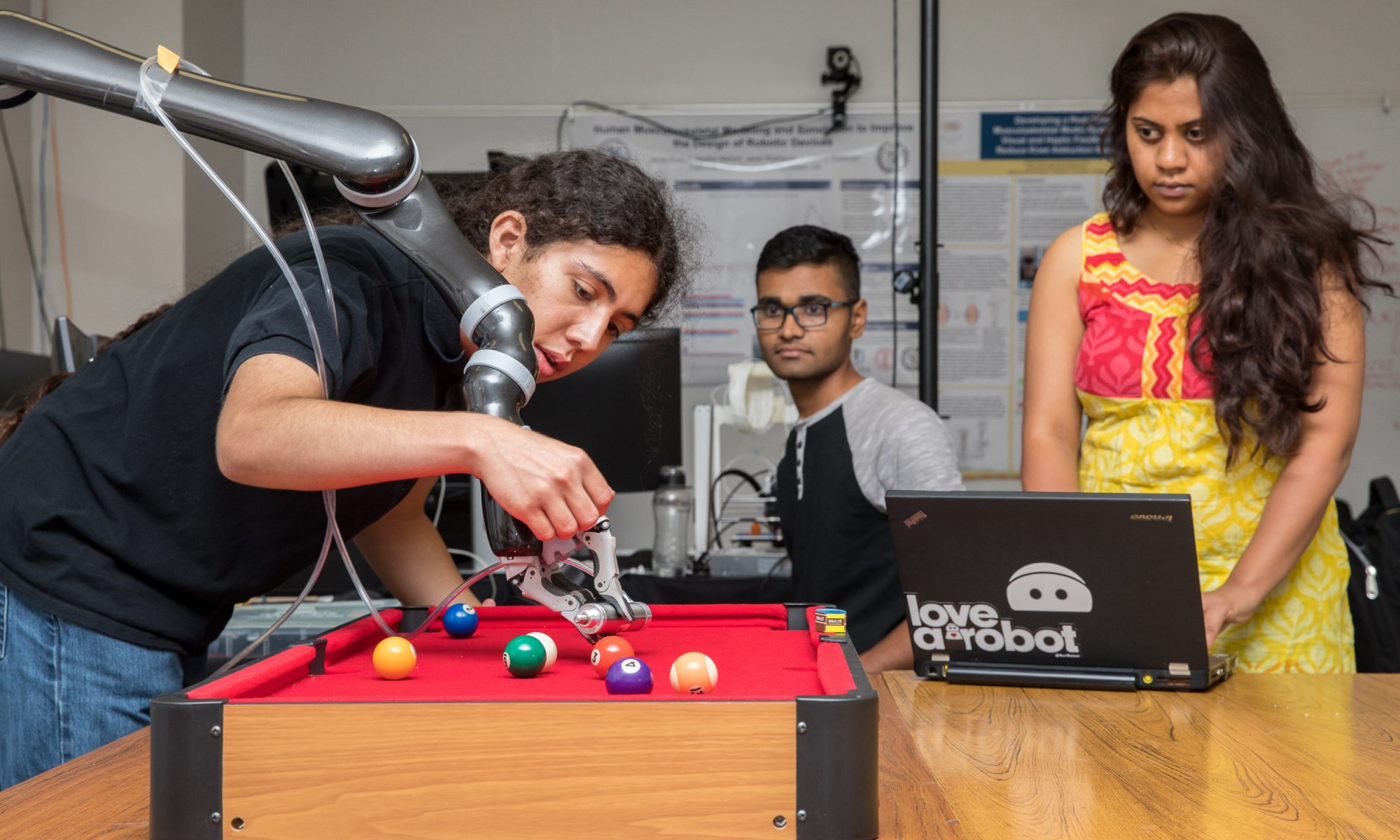
Emel Demircan, an assistant professor in the CSULB Mechanical Engineering and Biomedical Engineering departments, has been awarded a $175,000 grant to advance the understanding of human motor performance to help clinicians develop more effective motion-training treatments.
The National Science Foundation award will fund research to create a cyber-human framework that advances robotics and biomechanics, deepening scientific understanding of human motor performance dictated by musculoskeletal physics and neural control.
“The project has great potential to impact our society by creating a wearable cyber-human system to provide immediate feedback to the wearer to make postural corrections – applicable for the reeducation of patients with musculoskeletal disorders and for performance improvement in motion training,” she said.
Several graduate and undergraduate students will be funded through the grant to work on different components, including modeling, experimentation, simulation and virtual environments, real-time control, and hardware development.
Demircan is planning to integrate her long-term research and education ideas on a competitive NSF CAREER grant that will build upon this work to apply her developments in real-word contextual cyber-human settings.
The research will help clinicians quantify the characteristics of a subject’s motion and design effective motion-training treatments. The inability of current technologies to provide detailed motion reconstruction in real time has limited their use in clinical settings.
Demircan and her team will combine theory with software, hardware, and sensing technology to synthesize human motion with dynamic musculoskeletal models and to provide real-time visual feedback to a human subject.
The project will deliver open-source algorithms and metrics for quantifying human performance and understanding motion characteristics, with potential applications in rehabilitation, physical therapy, human-robot interaction, kinesiology, and occupational biomechanics.
In the first phase, the team will create task-based models of human motion, conduct motion-capture experiments to validate the model, and develop a computational platform to determine long-term performance statistics to characterize human motion.
In the second phase, researchers will integrate robust control and simulation algorithms into the computational system to synthesize movement using biomechanical models. The framework will be used to identify modifications to improve subject-specific motion characteristics. The criteria will be used to visually suggest modified trajectories that provide optimal motion to the subject.
Demircan joined the Department of Mechanical and Aerospace Engineering as an Assistant Professor in Fall 2015. She was a postdoctoral scholar from 2012 to 2014 at Stanford University, where she obtained her PhD, and a visiting assistant professor at University of Tokyo from 2014 to 2015. She was also a part-time scientist at Lucile Salter Packard Children’s Hospital Gait Analysis Lab at Stanford. At CSULB, she operates the Human Performance and Robotics Laboratory. Since Fall 2016, Demircan is jointly appointed with the departments of Mechanical and Aerospace Engineering and Biomedical Engineering.

